More Amex cuts: Gold, Platinum and Amex Rewards sign-up and referral bonuses reduced
Links on Head for Points may support the site by paying a commission. See here for all partner links.
Last month American Express made some aggressive – and frankly confusing – changes to the rules regarding who qualifies for a sign-up bonus on its personal UK cards. My summary of the Amex sign-up rule changes is here.
There are now further changes. This time American Express has changed the sign-up bonuses and referral bonuses on some cards.
Which cards have changed?
The changes impact American Express Preferred Rewards Gold, The Platinum Card and the American Express Rewards Credit Card.
The changes were due to go live at midnight last night and are already in effect.
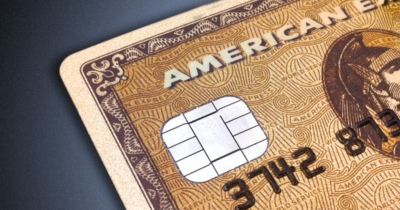
What are the changes to sign-up bonuses?
The sign-up bonus has been halved from 20,000 Membership Rewards points to 10,000 Membership Rewards points
The qualifying spend required to earn the bonus has increased from £2,000 within three months to £3,000 within three months
If you are referred by a friend to the card, you will receive a higher sign-up bonus of 12,000 Membership Rewards points (previously 22,000 Membership Rewards points)
On the American Express Rewards Credit Card:
The sign-up bonus has been halved from 10,000 Membership Rewards points to 5,000 Membership Rewards points
The qualifying spend required to earn the bonus has increased from £1,000 within three months to £2,000 within three months
On the American Express Rewards Low Rate Credit Card:
The sign-up bonus has been halved from 5,000 Membership Rewards points to 2,500 Membership Rewards points
The qualifying spend required to earn the bonus has increased from £500 within three months to £1,000 within three months
There is no change to the sign-up bonus or spending target on The Platinum Card.
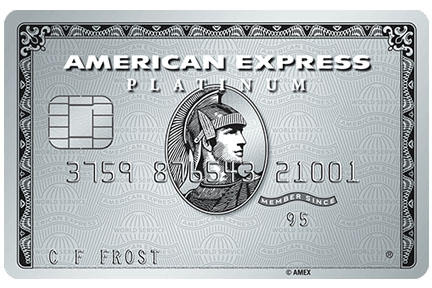
What are the changes to referral bonuses?
With Preferred Rewards Gold:
The bonus you receive for referring a friend falls from 9,000 Membership Rewards points to 6,000 Membership Rewards points
The annual cap on referral points remains at 90,000 points
With The Platinum Card:
The bonus you receive for referring a friend falls from 18,000 Membership Rewards points to 12,000 Membership Rewards points
The annual cap on referral points remains at 90,000 points (if you refer 8 people, you only receive 6,000 points for the last one as you hit the 90,000 points cap)
There are no referral bonuses for the American Express Rewards Credit Card.
There are no changes at all, for now, to the British Airways, Nectar and Starwood card bonuses.
What is going on here?
On the face of it, some of these changes do not make a lot of sense. Primarily, why should you need to spend £3,000 to get the bonus on Preferred Rewards Gold when you only need to spend £2,000 to get the bonus on The Platinum Card?
I get a feeling that American Express is pulling back from its attempts to make Preferred Rewards Gold a mass-market product. There is no other logical reason for pushing up the target spend to £3,000 in three months, which for Mr & Mrs Average is likely to be more than their remaining cash once housing costs and household bills are paid.
It is possible that the American Express Rewards Credit Card will be positioned as the mass-market product, although doubling the target spend to receive the sign-up bonus will also reduce the market for this product.
I am not really concerned about the changes to the American Express Rewards Credit Card, because the only reason a HfP reader should get this is to ‘protect’ your Membership Rewards points from deletion if you choose to cancel your Gold or Platinum card. I explain more in this article.
Is Amex risking long term damage by cutting off the ‘path’ for new cardholders?
My first American Express card, a long time ago, was a Gold. Over time I progressed to The Platinum Card, and then – when it launched in 2004ish – the British Airways Premium Plus card, which was initially free to holders of The Platinum Card.
I suspect that – outside the world of Head for Points readers, who are well educated by our articles on the benefits of each card – most people start off with the free cards and then progress. This is either as their income increases (so they can afford the annual fees on the premium cards) or as they become more comfortable with American Express as a partner.
Amex has now made ‘progressing’ less attractive. For example:
if you start with the ‘free for life’ American Express Rewards Credit Card or ‘free for the first year’ Amex Gold, you are disqualified from the bonus on the free British Airways card or the Starwood card
if you start with the free BA Amex but decide that narrowing your focus to just Avios rewards makes no sense, you are locked out of the bonus on Gold, Starwood etc
if you start with the Starwood card but decide that Marriott Bonvoy no longer offers good value redemptions, you are locked out of the bonus on Gold and the free BA card
There are also no upgrade bonuses to persuade people to go from the free BA card to Premium Plus, or from the new credit card version of Preferred Rewards Gold to The Platinum Card.
And what is ‘the best starter card’ now?
HfP has generally promoted Preferred Rewards Gold as the best ‘starter’ card for someone coming into travel rewards. This is because:
it had a generous sign-up bonus of 20,000 points (=20,000 Avios)
the points could be converted to a LOT of different rewards programmes, so you didn’t have to focus too early whilst you learned the ropes
you got your first year for free
you got two free airport lounge passes
you were free to earn a bonus on the BA or Starwood cards at a later date if you did choose to specialise
The situation is now different:
the sign-up bonus has been halved to 10,000 points (=10,000 Avios)
the target spend has been increased to £3,000 in three months
taking out Preferred Rewards Gold now blocks you from getting a sign-up bonus on a later date for the free British Airways card or the Starwood card – your only option for another bonus is the British Airways Premium Plus card
Overall, I am still tempted to say that Amex Gold is the best starter card for most people. There is still a bonus, albeit lower, and the two free airport lounge passes will open your eyes to what your miles and points can do for you. There is still no fee for the first year.
It is arguably better than telling people to start with the free BA Amex, which blocks them from both the Amex Gold bonus and the BA Premium Plus bonus. In reality, the best ‘first’ card is probably:
The Platinum Card – but most people who are new to Amex won’t want to stump up £450, or
The Starwood Preferred Guest American Express card – because you can still get a bonus on both The Platinum Card and British Airways Premium Plus later, and you only need to spend £1,000 to trigger the sign-up bonus. However, this is a confusing card for a beginner (even explaining why the Marriott card is called the Starwood card isn’t simple), it has a fee and the two cards you can upgrade to both have even chunkier fees which a lot of the market doesn’t want to pay.
The ‘keep it simple, stupid’ school of marketing is one which I have always believed in, but the current run of changes at American Express seems to be putting that to the test.
Want to earn more points from credit cards? – April 2024 update
If you are looking to apply for a new credit card, here are our top recommendations based on the current sign-up bonuses.
In February 2022, Barclaycard launched two exciting new Barclaycard Avios Mastercard cards with a bonus of up to 25,000 Avios. You can apply here.
You qualify for the bonus on these cards even if you have a British Airways American Express card:

Barclaycard Avios Plus Mastercard
Get 25,000 Avios for signing up and an upgrade voucher at £10,000 Read our full review

Barclaycard Avios Mastercard
5,000 Avios for signing up and an upgrade voucher at £20,000 Read our full review
You can see our full directory of all UK cards which earn airline or hotel points here. Here are the best of the other deals currently available.

British Airways American Express Premium Plus
25,000 Avios and the famous annual 2-4-1 voucher Read our full review

American Express Preferred Rewards Gold
Your best beginner’s card – 20,000 points, FREE for a year & four airport lounge passes Read our full review

The Platinum Card from American Express
40,000 bonus points and a huge range of valuable benefits – for a fee Read our full review

Virgin Atlantic Reward+ Mastercard
15,000 bonus points and 1.5 points for every £1 you spend Read our full review
Earning miles and points from small business cards
If you are a sole trader or run a small company, you may also want to check out these offers:
SPECIAL OFFER: Until 12th May 2024, the Capital on Tap Business Rewards Visa card is offering a bonus of 30,000 points, convertible into 30,000 Avios. You must have a Limited Company to apply. Click here to learn more and click here to apply.
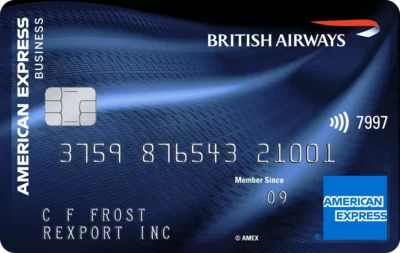
British Airways Accelerating Business American Express
30,000 Avios sign-up bonus – plus annual bonuses of up to 30,000 Avios Read our full review

American Express Business Platinum
40,000 points sign-up bonus and an annual £200 Amex Travel credit Read our full review

American Express Business Gold
20,000 points sign-up bonus and FREE for a year Read our full review

Capital on Tap Business Rewards Visa
Huge 30,000 points bonus until 12th May 2024 Read our full review
For a non-American Express option, we also recommend the Barclaycard Select Cashback card for sole traders and small businesses. It is FREE and you receive 1% cashback on your spending.
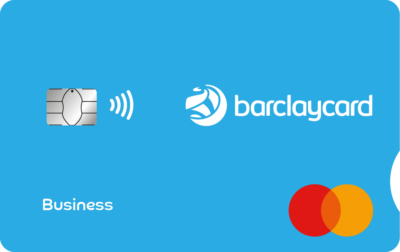
Barclaycard Select Cashback Business Credit Card
1% cashback uncapped* on all your business spending (T&C apply) Read our full review



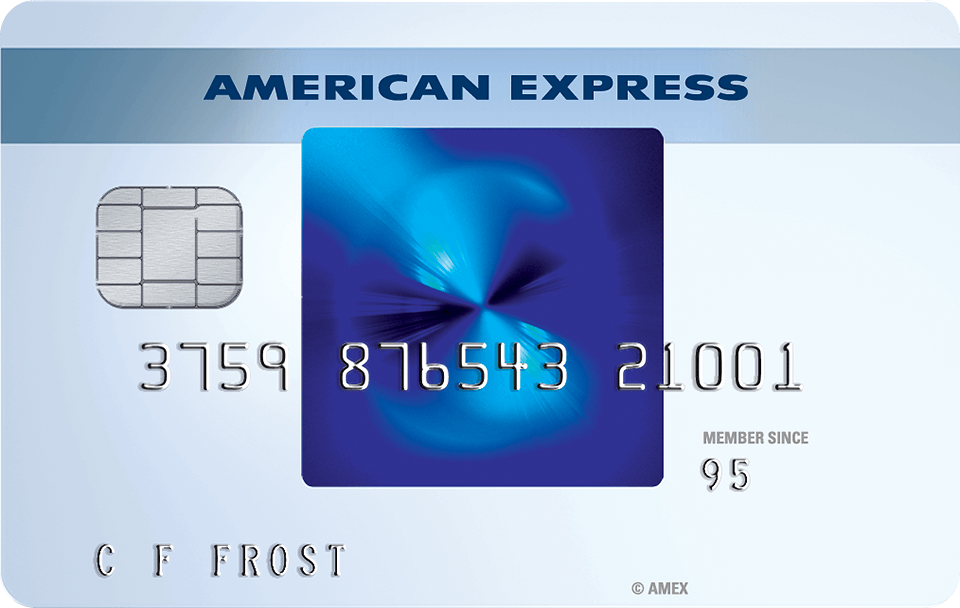
 Rob
Rob 





Comments (499)